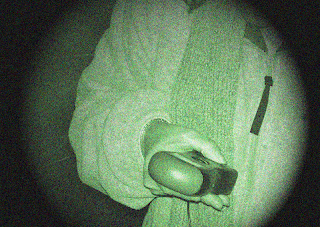For most people, hearing, seeing or encountering a ghost is enough to make believers out of them. However, paranormal research aims to take this very personal experience and present acceptable evidence to the masses. They seek out ways to quantify and calculate the presence of spirits, to capture them on camera, or even to disprove commonly reported phenomena. Today, there are numerous approaches to researching the ghost paranormal phenomenon.
Some researchers take an anecdotal approach to the research of it by collecting ghostly stories from around the world and comparing them. Charles Fort (1874-1932) is one of the most trusted collectors of anecdotal evidence, with over 40,000 accounts of unexplained paranormal happenings on record. Most of these notes came from magazines, newspapers and scientific journals, he says. The culmination of this evidence is contained in four noteworthy books: The Book of the Damned (1919), New Lands (1923), Lo! (1931), and Wild Talents (1932).
His stories talk of poltergeist activity, teleportation, falling fish and frogs across a tremendous range, crop circles, bumps in the night, levitation, spontaneous fires, UFOs, mysterious disappearances and appearances, wheels of light over the ocean, phantom animals, out-of-place artifacts and alien abductions. Some consider Fort to be the "father of modern paranormalism." While there is no empirical evidence, per se, many people like reading these personal accounts of the paranormal and it's interesting to note the compiled similarities of certain events.
Other researchers prefer the participant-observer approach to paranormal research. A parapsychologist will look for ways to prove the existence of a paranormal phenomenon in a laboratory setting, although most hunters of ghosts prefer to immerse themselves in the field, looking for clues in places that are allegedly haunted. This method has gained increased popularity through reality TV shows like Ghost Hunters, where researchers collect data and report their own personal experiences. While these sort of first person observations do not gain respect in the scientific community, many people can identify with these accounts as being something they've experienced at one time or another.
Many of the best people conducting paranormal research are impartial skeptics. While they would like to prove the existence of spirits, they are more likely to seek out rational explanations for bizarre occurrences. Opinion polls show that most people would like to believe in ghosts and surmise that there is life beyond death.
The general public is exceedingly curious about the continuation of life beyond this world and some of the ghost stories may reveal people's fears about the unknown. Despite widespread beliefs in it, the National Science Board asserts that these beliefs can actually be dangerous. They say belief in it shows reduced critical thinking skills and a reduced ability to make day-to-day decisions.
Article Source: http://EzineArticles.com/?expert=Mike_Selvon


No comments:
Post a Comment